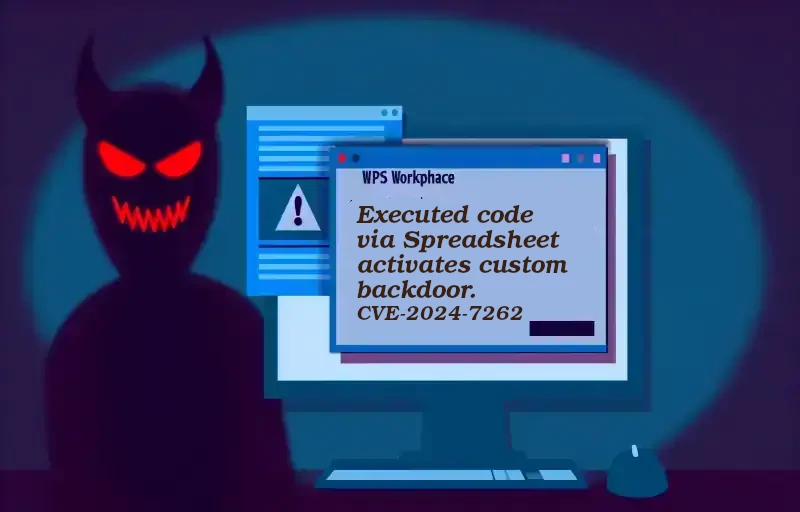
“Unveiling CVE-2024-7262: A Critical WPS Office Flaw Exploited by APT-C-60 to Deploy SpyGlace Malware”
Analyzing CVE-2024-7262: A Deep Dive into WPS Office’s Code Execution Vulnerability
The recent discovery of CVE-2024-7262, a critical vulnerability in WPS Office, has sent ripples of concern throughout the cybersecurity community. This flaw, found in the software’s plugin component is not just another bug—it’s a gateway for attackers to seize control of an application and execute arbitrary code. The implications of such a vulnerability are severe, as it allows cybercriminals to manipulate the software to their advantage, potentially leading to widespread data breaches and system compromises.
CVE-2024-7262 is particularly alarming because it exploits the trust users place in seemingly benign documents. The attack vector involves a crafted spreadsheet document that, when opened with WPS Office, activates a custom backdoor known as SpyGlace or TaskControler.dll. This backdoor serves as a conduit for attackers to deliver malicious payloads directly into the heart of targeted systems. The sophistication and stealth of this method are indicative of a high level of planning and knowledge on the part of the attackers, making it a formidable threat to counter.
Adding another layer of complexity to this security challenge is the use of the MHTML file format by the attackers. Known for its ability to bundle various web resources into a single file, MHTML is typically used for archiving web pages and their associated files. However, in the hands of cybercriminals, this feature becomes a tool for deception. By embedding a hidden hyperlink within an MHTML document, attackers can lure unsuspecting users into triggering remote code execution simply by interacting with what appears to be a harmless link.
This exploitation is facilitated further by the ksoqing protocol handler, which is registered by WPS Office. This protocol handler allows external applications to be executed through specially crafted URLs, providing a perfect loophole for cyber attackers to exploit. Once the malicious code is triggered, it can act autonomously to download additional malware from a remote file path, thereby deepening the intrusion into the affected system.
The discovery of CVE-2024-7262 underscores a worrying trend in cybersecurity threats where commonly used applications become prime targets for exploitation. WPS Office, widely utilized for its compatibility with Microsoft Office file formats and its affordability, now finds itself at the center of potential cyber attacks that could affect millions of users worldwide. The reliance on such software for everyday tasks makes it imperative that vulnerabilities like these are addressed swiftly and effectively.
As we delve deeper into the mechanics of CVE-2024-7262, it becomes clear that this is not just an isolated incident but a symptom of broader security challenges facing software ecosystems today. The integration of various file formats and protocol handlers can create unforeseen backdoors into systems, which are exploited by adept cybercriminals. This incident serves as a stark reminder of the ongoing arms race between cybersecurity professionals and cybercriminals.
In response to this threat, both individuals and organizations must stay vigilant and ensure that their software is regularly updated to patch known vulnerabilities. Moreover, understanding the tactics employed by attackers helps in crafting more robust defenses against such sophisticated threats. As we continue to navigate this digital age, the security of our virtual environments remains an ever-present concern that demands our attention and action.














